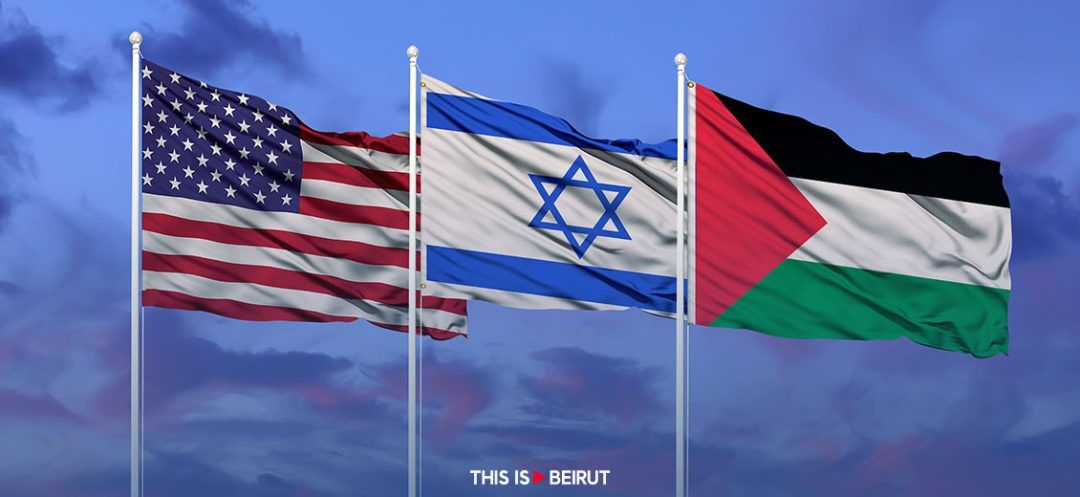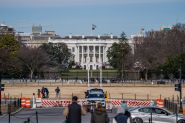- Home
- Middle East
- Dilemmas of Security

The dynamics of violence that were unleashed after the 7th of October in South Israel have mutated into a major strategic turnaround that questions the extant geopolitics in the Near East. The Hamas murderous undertaking turned out to be a major disaster, which led to the destruction of Gaza and its transformation into a graveyard. What’s dumbfounding is the moral callousness of Hamas, its strategic blindness, and political deafness. It is still acting as if nothing has happened and readying itself to a post-war role without raising any doubt about its accountability, representativeness, and the future of the humanitarian and urban wasteland it has deliberately created. The voices of the opposition of disgruntled Palestinians are not restricted to the Palestinian Authority and the PLO as their nemeses but have extended to the civil society at large, and to the young Palestinians who are fed up with the reign of terror that has prevailed throughout the 17 years of Hamas takeover. They were quite explicit when they expressed their utter rejection of whatever arguments articulated by Hamas to justify its criminal folly and exculpate its moral depravation, while brazenly overlooking the magnitude of the devastations they have brought upon the Gaza district and its civilians. Rather than acknowledging its responsibility, it asked Palestinians for forgiveness and promised to pursue the purported liberation, as if the disastrous outcomes were not enough to give way to an alternative course that spares the Palestinians of Gaza's future tragedies.
The Israelis, on their side, however deeply split over the future course of the conflict, have altogether agreed on the need to remodel the strategic landscape, and cut down on all future attempts at their national security, at their different national borders, and namely at the interfaces with Gaza and the Lebanese Syrian crossroads. This leaves us with two major questions related to the future battles of Rafah and South Lebanon. The magnitude of the foreseeable humanitarian losses and the tragic plight of Gaza, the brunt of international pressure, and the security of the Israeli hostages are quite dissuasive considerations but cannot outweigh the strategic ones: the defeat of Hamas and the destruction of its operational platforms. Otherwise, the whole war undertaking is made redundant, relegated to irrelevance and the Israeli security laid bare. A humanitarian truce without a strategic and security purview will inevitably backlash, put at risk security, and prepare the ground for future violence. Therefore, the Israelis are adamant about the overriding primacy of strategic and security issues, whereas Hamas is still overplaying its hazardous course and downplaying the security and welfare of Gaza and its constituencies. The American mediation, while attentive to the Israeli security imperatives, has unrelentingly worked on addressing humanitarian issues in Gaza and the Israeli hostage’s liberation. Any approach that fails to connect the strategic and security issues to the humanitarian ones is doomed to fail; variables are not exchangeable. The specific riddle in this case is how the IDF (Israel Defense Forces) can achieve its legitimate military goals with the least damaging and lethal effects, or whether Hamas is likely to negotiate its surrender and spare Northern Gaza the tribulations and devastations of a new round in Rafah.
The Lebanese strategic scenery is identical to the Gaza military and political terrains, with major differences related to the territorial breadth and the complexity of the political tapestry. Otherwise, what unites them is that both are hostages to the Iranian subversion politics throughout the Near East. Hezbollah has succeeded in taking over power in Lebanon by dismantling constitutional statehood and transforming it into an appendage to its domination strategy while using its geo-strategic platforms as operational theatres. The Hezbollah modus operandi, far from being a novelty, recapitulates a whole legacy of sublated sovereignty and instrumentalization of Lebanese territories by the subversion politics of the Leftist-PLO coalition and its Cold War allies. The Hezbollah subversion strategy operates on the intersection between overlapping domination politics and their strategic continuums. Hezbollah mentors Hamas as a proxy and auxiliary to the Iranian imperial strategy, and they both follow the same script: the annihilation of their domestic nemeses through terrorism, as a prelude to the multidirectional subversion strategy. The symmetric subversion strategy is no coincidence, it is the outcome of an integrated vision that accounts for the ongoing conflict dynamics and their projected objectives. In both scenarios, we are moving from intermittent to systematic confrontation, let alone total war.
The destruction of the headquarters of the Iranian revolutionary guards in Damascus was the litmus test that demonstrated Iran’s military ineptitude, strategic miscalculations, and internalized fears. The dismal failure of the Iranian retaliation, the solidity of the strategic containment of the US-led alliance, and the fallacy of the Global South and its ideological whims have proven their inconsistency. This episode may be the turning point to upend the strategic equations, put an end to the open hostilities, break away from the Iranian domination strategy, and pave the way to the downfall of the discredited Islamic republic and the demise of its narrative and political incidence. Lebanese and Palestinians have no other chance to rebuild their political and moral autonomy unless the Iranian domination is defeated, and the region has no prospects of stability and peace unless the Iranian subversion strategy is eradicated. The de-radicalization of Sunni Islam which followed the defeat of ISIS and Al Qaida, and the spread of the systemic reforms paradigm in Saudi Arabia and the United Arab Emirates await the downfall of the Iranian regime to oversee the rise of a post-Islamist, democratic, and development-oriented Arab Middle East.
Aside from the wishful thinking and humanitarian longings of “conviction ethics” (Gesinnungsethik), the security stalemate is unlikely to endure and overlook the strategic hazards. Israelis, notwithstanding their ideological and political differences, are unanimous about upending the strategic equations putting at stake their security, and moving unto a new military and political dynamic. The contours of this new dynamic are still undefined and a source of major controversy amongst Israelis and within the Jewish diaspora. Israelis are urged to find common grounds through which they proceed with their negotiations with the Palestinians: their ideological differences over nationhood, strategic security, international agreements, and the future of their relationships with the Palestinians. The Palestinians, led by the overhauled Palestinian authority, are invited to regain their national and moral autonomy away from the pattern of alienating dependencies, and their only path is to reengage the dynamic of negotiations with Israel on the very basis of past agreements. This last episode of the Israeli-Palestinian conflict urges, on both sides, a deliberate move towards a conclusive peace treaty, based on mutual recognition, dual statehood, consensual strategic security, and economic cooperation. However critical truce agreements are at this stage, they still fall short of their ultimate goals without political enframing and strategic anchoring.
Read more



Comments